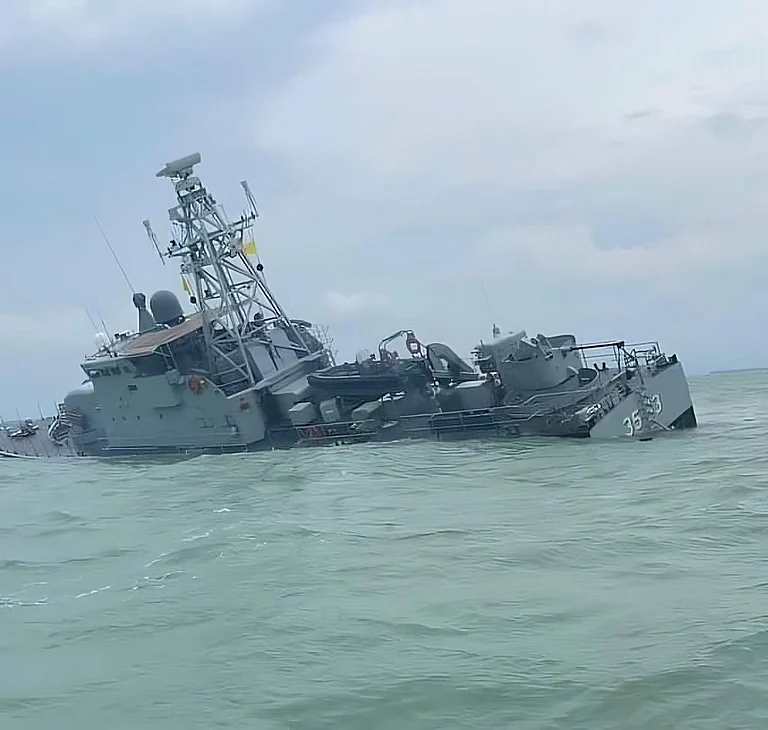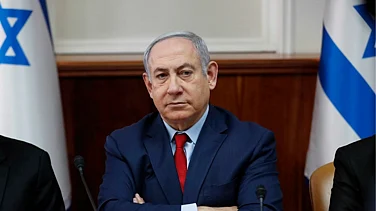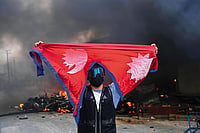In the wake of a significant reduction in UN peacekeeping forces in northern Mali, there has been a troubling surge in violent attacks across the region. These attacks have more than doubled since the initial phase of UN troop withdrawal, with over 150 lives lost as a result. One particularly audacious assault saw militants targeting a passenger boat, resulting in the tragic deaths of 49 civilians. Furthermore, rebels recently launched attacks on Malian army camps near the border with Mauritania, resulting in casualties among the security personnel stationed there.
The escalating violence has left many Malians in a state of fear and uncertainty, especially in the hardest-hit areas like Timbuktu. Residents are abandoning their homes, driven by the fear that they or their loved ones could be the next victims of rocket attacks and other acts of violence, AP reported.
Mali's military junta, in power for over three years, is grappling with the growing security crisis in the northern region. Their demand for the withdrawal of approximately 17,000 peacekeepers has inadvertently created vulnerabilities in the country's already strained security infrastructure. As a consequence, both jihadist groups and former rebels are exploiting these opportunities to expand their influence and control over more territories.
The frequency and intensity of these violent attacks have reached unprecedented levels since 2020, when Mali experienced two coups that led to the current junta's rise to power. Mahamadou Bassirou Tangara, a Malian security analyst, notes that these attacks are now targeting civilians with alarming regularity.
According to data from the Armed Conflict Location & Event Data Project (ACLED), Mali has been averaging four violent attacks daily since the beginning of the year, representing a 15 percent increase compared to the same period last year. The situation is particularly dire in the northern region, where attacks have more than doubled since the completion of the UN peacekeepers' initial withdrawal on August 25, resulting in over 150 fatalities.
The collapse of the 2015 peace agreement with ethnic Tuareg rebels has exacerbated the security crisis. Recent attacks on major Malian army bases claimed by the Tuareg rebels highlight the failure of this crucial peace deal. Known as the Permanent Strategic Framework for Peace, Security, and Development (CSP-PSD), this agreement appears to be unraveling, leading to further instability in the region.
Despite being a top gold producer in Africa, Mali ranks as the sixth least developed nation globally. With nearly half of its 22 million citizens living below the poverty line, the escalating violence is pushing even more people into a humanitarian crisis. Over a third of Mali's population now requires humanitarian assistance due to the ongoing conflict, according to the Mercy Corps aid group. Many residents in violence-prone areas are faced with a harrowing choice between staying in their villages, risking their lives to protect their livelihoods, or fleeing to seek safety.
The UN Office for the Coordination of Humanitarian Affairs (OCHA) has reported over 33,000 people fleeing the Timbuktu and Taoudeni regions in northern Mali, seeking refuge in Mauritania and Algeria to escape the violence.
A recent UN report suggests that al-Qaida-affiliated and Islamic State group-linked organizations in Mali have nearly doubled the territory under their control in less than a year, raising questions about the effectiveness of the UN peacekeeping force, known as MINUSMA. MINUSMA, which has become the most perilous UN mission globally, has been asked by Mali's military government to leave the country. Over 30 percent of its personnel are expected to have withdrawn by the end of September, with the operation officially concluding on January 1.
To combat the escalating violence, Russia's Wagner mercenary group has been involved, according to diplomatic and security officials. Mali's military leader, Col. Assimi Goita, recently appeared in a photograph alongside Russian President Vladimir Putin, underscoring the existing partnership between Mali and Russia. However, experts believe that Wagner's involvement is insufficient and cannot fill the security void left by MINUSMA's withdrawal, particularly in the hard-hit northern region, where security forces are limited to conducting only a few airstrikes without significant ground operations against rebel forces.
With the UN peacekeepers departing from Mali, security experts like Ryan Cummings, director of Africa-focused security consulting company Signal Risk, warn that the country's ability to contain militant groups will be severely curtailed. The withdrawal of MINUSMA is expected to worsen an already precarious security environment in Mali, potentially having far-reaching implications for the country's economic and political landscape, particularly in relation to Mali's intended political transition.





















